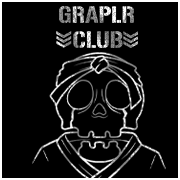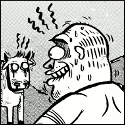|
Hey, love the thread. I'm tutoring some ELL's for Peace Corps hours, and i'm looking for some general tips. Chances are they're all going to be Indian or Chicano. Proud to say i'm an Lit/English for New Media major, but I don't have much experience teaching. Any basic exercises that I could run through? tokenbrownguy fucked around with this message at 01:57 on Apr 20, 2011 |
|
|
|

|
| # ? May 12, 2024 15:25 |
|
KildarX posted:For a given period, are there stylistic differences between European or even American writers? Other than the language? Definitely. I dislike the vagueness of zeitgeist and most like terms, but it seems appropriate here. At least in the sense that (a) there are attitudes or sets of attitudes endemic to times and places, (b) these attitudes find expression in texts produced by these times and places, and (c) an experienced outside reader can divine some of these attitudes through close textwork.* Shakespeare is a perennial example, and the Shakespearen text to go to is in this case Henry V; lots of critics have written about the ways that HV both reflects and propagates different types of social organizations that are probably peculiar to Early Modern England -- Greenblatt and Dollimore for starters. But at a more appreciable level, you just have to look at the ways class and place work in HV, which sounds like a more theory-centered process than it actually is. Basically, HV presents us with three classes of English martial characters, Henry excluded: common folks (i.e. cannon meat, e.g. Bardolph); technicians (i.e. thinking, professional soldiers, e.g. Fluellen, Macmorris, Gower, Jamie); and aristocratic commanders (i.e. nobles warring for honor, e.g. York, Suffolk). Basically, the composition of these classes and their textual attributes describe a set of cultural perspectives probably unique to late Elizabethan London -- actually, a very specific Late Elizabethan London still enamored of Essex, who until his return from Ireland was a sort of martial Joe Louis. It was at the particular historical moment possible for a Londoner to imagine Britannia (that is, a united England, Wales, Scotland, and Ireland) as a four-nationed fist of God that would announce its imperial designs with a quick and bloodless reclamation of its long-lost French territories. All of the ingredients were, for a brief moment, there: an able commander (in Essex), a patriotic (i.e. non-rebelling) aristocracy, a technically-skilled and valiant class of soldiers (e.g. the Welsh), and a pliant underclass of dirt farmers (displaced or impoverished by recent dearth, agricultural advances, and what we would in hindsight call the ascendance of mercantile capitalism) who could be driven into the meat grinder as easily as any. And so Henry V reflects and propagates these attitudes; we get our three classes of soldiers, each telling the story of the war from their own variously-dissenting-but-ultimately-loyal perspectives, and we have an able commander (Henry) who can unify those classes (as well as a corrupt clergy, etc.), or at least bend them to his imperial designs. This is, in short, England's largest city imagining the possibility of an empire before that empire becomes a practical possibility, much less a political reality. You can see this happen in lots of other Early Modern English texts, too -- Patty Ingham traces this back to the English rewriting and revival of Arthurian legends during the Middle Ages, and Restoration scholars have a never-ending field day tossing texts up against the rise of industrial capitalism and the practical emergence of British Empire, parliamentary politics, and so forth. And you can also see this in later British texts. If you've recently read any of the Doyle's Sherlock Holmes stories, you'll find that they are unapologetic admirers of Holmes's potential for violence, his depression, drug use, theatricality, and manic arrogance; but these are all in the context of a character who is ruthlessly professional rather than a misunderstood but brilliant antihero/artist (like e.g. Gregory House). I'm going to dwell on this, so if you have no interest in Sherlock Holmes you may want to read something else. This attitude is historically peculiar. For instance, it would be very difficult for a modern audience to understand, much less sympathize with, a character who uses drugs frequently, recreationally, and without apology, but who is not an addict and is not described using a vocabulary of addiction. That alone seems nearly inconceivable, forgetting that this character enjoys wearing disguises to solve crimes, gives homeless children small change to spy on people and these things are signs of moral commitment and professional excellence. I mean, holy poo poo. Can you imagine an episode of, I dunno, a CSI where a detective solved a crime by paying a homeless orphan five bucks to spy on a suspect and nobody had a problem with that, and then he got so bored by finishing the case early that he went home and mainlined cocaine and nobody had a problem with that? The past is another country. * I just made that word up. I like it better than "close reading" because reading is usually understood as a semi-active process excluding research and occasionally excluding analysis.
|
|
|
|
Thanks Brainworm.quote:you'll find that they are unapologetic admirers of Holmes's potential for violence, his depression, drug use, theatricality, and manic arrogance. I would say that this attitude continues with Ian Flemming's 007 series.
|
|
|
|
Verr posted:Hey, love the thread. Thanks! quote:I'm tutoring some ELL's for Peace Corps hours, and i'm looking for some general tips. Chances are they're all going to be Indian or Chicano. Proud to say i'm an Lit/English for New Media major, but I don't have much experience teaching. This is pretty far outside my expertise and experience, so my advice may be both abstract and worse than useless. Students need you to do two things: keep them interested in learning and train them to be effective learners. You are not really an effective information delivery system, so your job is to incline your students to gather information on their own, and train them to do this with some skill or fluency. What I'm saying is, your time with a student or students is too valuable to waste by delivering content, so students need to learn how to find content on their own and how to most effectively use it once they've got it. How you apply this is up to you, and depends on your skills as much as it does on the situation of your students. Knowing little about your situation -- who your students are, how many of them there are, how old they are, and whether you have. e.g. an interpreter to help you along -- I'd recommend exercises or tasks built on Problem-Based Learning principles. Just for instance, you could start by asking students why they want to learn English or what they want to do with the language once they learn it. This is a nice way to open with students, since it give you information you'll need to know later on, and tells them that you take some interest in them as people with aspirations rather than, say, a set of illiterate problems for which you are a benevolent solution. You can then construct problems that build on those aspirations, and whether you have individual students working toward individual goals or whether you have groups of students working together, you still have them run through the same basic process, namely: (0) Students are given a problem (X) that is both realistic and relevant to their self-described goals. Then they (1) determine what X-relevant matter they already know. After this, they (2) determine what they need to know, and (3) how or where to find out. Your job during this process is to help students with (2) and (3), mostly by adding to the list in (2) and guiding them to resources in (3). So a PBL exercise for one of your ELL students or tutees might look something like this. Say you've got a one who wants to move to, I dunno, Toronto. Tell him that he's driving from wherever to wherever and his car stops running. It's ten at night and he doesn't have a phone. Any solution for this problem is going to involve a decision or possibility tree that's going to in turn require fluency in Canadian English and culture (insofar as those are separable terms), or in what I sometimes call practical language -- that is, language rooted in a set of culturally appropriate actions. And this is important because language acquisition isn't about memorizing words for common household items or learning scripts; it's about communicating with other people in complex situations. So your student is going to need to learn how and when to flag down a passing vehicle, and at what time, and in what ways, it would be safe and appropriate to knock on the door of a nearby house and ask to use the phone, etc. Your job is not to tell him these things, but to help him develop a list of the things he needs to know, point him to resources he might be able to use to find out, and show him how to use those resources if he doesn't already know or doesn't know how to begin puzzling them out. I don't teach English as a second language, so there are probably lots of things veterans of that practice could tell you that will be more useful and about which I am wholly ignorant. But I'm also confident that as long as you don't fall into the trap of imitating what you did in school, or of making students depend on you by creating a highly-artificial environment in which you're the sole source of important information, you'll likely do fine.
|
|
|
|
Wow, i'm about to head out to a 1:1 session with a student. This will help a bunch! Thanks for taking the time to write that out. I'll try to put it into practice.
|
|
|
|
Brainworm, I have a problem. It's all your fault, really: I was reading my favorite authors and trying to pick up their tricks. Now, the guys I like have very rhythmic prose, so the question is: how do I master metrical prose? I've been copying out passages I like and then trying to write passages with the different content but the same rhythm. It doesn't work. My passages come off as (at best) stilted and (at worst) Engrish-y.
|
|
|
|
emys posted:Brainworm, I have a problem. That's a really good question. I'd start by thinking in iambs; any other metrical foot will likely outmatch my talent by laboring against English's natural rhythms. I'd work in phrases of four or five feet, translating lean prose into "natural-sounding" metrical prose -- by "natural sounding" I mean "prose that mimics the forms of casual conversation." These conventions are elastic and make your verse sound effortless; practiced poets often bury meter this way. So let me start with a clean phrase; not one that I'd say casually, but one that I would write were clarity my goal: quote:The cat pulled itself into my dresser drawer. There are other details about this matter in my head, since it happened this morning. The cat in question is good natured but, like many Siamese (cats), slightly crosseyed, easily startled, and borderline retarded.* So this sentence is only one in a series of events that began with this cat looking at my underwear and sock drawer as though it were whispering to him, mewing quietly as he tried to decide whether the drawer could be further opened while he stood on it, being startled by a noise the drawer made, running away (with a galloping sound peculiar to him), waiting, peeking back into the room to verify the drawer had not pursued him, reapproaching the drawer, &c. The point is, I have a clear mental picture of the events I'm aiming to describe, and so have a bank of words and images to draw on should I need them to round out my meter. So, thinking in meter, I can start with the cat: quote:The cat was white, a Siamese. Easy enough. Sounds conversational, at least insofar as it's a loose sentence. And it's perfect tetrameter. Now that that's established, I could break meter to emphasize something about him: quote:The cat was white, a Siamese. Or: quote:The cat was white, a Siamese. Or of course I could continue the meter: quote:The cat was white, a Siamese. Printing it without line breaks takes some weight off of them and makes the meter less obtrusive; what we end up with is a passage that (were one not looking for the meter) imitates some looser aspects of conversational speech**: quote:The cat was white, a Siamese. He galloped, startled, to the hall then waited -- pensive, to be sure some shocking noise had left the room. Then crosseyed, swiss-cheese brain on fire with fears peculiar to a cat bred from lines of cousins, peeked around the door and stared, intent [...] That could go on for some time, but I want to point out a few things about it. The first is that it is built out of loose, conversational sentences of considerable length. This is the way I'd tell a story -- stretching out an event, filling in details, pressing phrasing, and so on*** -- but it is not generally the way I'd write one. The second is that it departs, perforce, from the event I originally aimed to describe. You can get good direct prose or good rhythmic prose, but you shouldn't expect to get both. If you do, I think you're likely to end up forcing words into the meter. I mean, keeping my word count more or less the same, the best I can immediately do is: quote:Into my dresser drawer there crawled a cat who I call Pony Boy [...] Which reads like one of those awful early American Bibles. Terrifying. So that's my advice. Go iambic and with tetrameter or pentameter (if you want regular meter), keep what you're describing in your mind and in considerable detail (so you have a complex image or set of events or situations to draw on), and let the loose structure of your writing pull you through your description -- don't be afraid to digress, &c., since natural speech does that all the time. * By the standards of "purebred" animals, even. I like this cat, but I imagine his brain's like a golf ball-size piece of Swiss cheese. ** Or would were I a more enthusiastic and talented poet. *** Which is why I owe my life to the patience of strangers. Brainworm fucked around with this message at 15:20 on Apr 27, 2011 |
|
|
|
How do you feel about the cliche that there are no jobs (besides teaching) for English majors? Do you feel this is generally true?
|
|
|
|
Can you explain, in as great of depth as possible, the proper use of "that". For instance; the coffee cup that I have in front of me says "Careful, the beverage you are about to enjoy is very hot." It breaks my brain. I think that the sentence should be "Careful, the beverage that you are about to enjoy is very hot." My daughter is in high school and she refuses to use "that" in the context that I believe is true. Am I wrong?
|
|
|
|
Bellams posted:How do you feel about the cliche that there are no jobs (besides teaching) for English majors? Along this same path, after completing an education in English [Masters/Bachelors] what does it qualify someone to do? besides write.
|
|
|
|
KildarX posted:Along this same path, after completing an education in English [Masters/Bachelors] what does it qualify someone to do? besides write. I have a degree in English and I'm an academic advisor for graduate students. And I've never worked as a barista! I have several former classmates that work in universities in similar positions, like in writing centers and student services-type positions. Many had to get graduate degrees, though. I think it's a great starting degree for academic positions, not necessarily for teaching. I also have former classmates who work in marketing and PR. Marilyn Monroe fucked around with this message at 15:39 on May 27, 2011 |
|
|
|
Ration posted:Can you explain, in as great of depth as possible, the proper use of "that". For instance; the coffee cup that I have in front of me says "Careful, the beverage you are about to enjoy is very hot."
|
|
|
|
Bellams posted:How do you feel about the cliche that there are no jobs (besides teaching) for English majors? I have mixed feelings about it. On one hand, you can look at studies done by initiatives like LEAP and see that e.g. education in the Humanities (including education in English) is correlated with gains in abstract reasoning that education in professional vocationally-focused programs (such as Engineering) are not. It seems reasonable to assume that these skills have some value in the marketplace, and LEAP employer surveys suggest that these skills are sought after. On the other hand, there seems to be considerable distance between what employers say they want and what the marketplace is prepared to reward; despite, in short, employers' self-proclaimed desire for employees with skills in abstract reasoning, communication, writing, etc, and despite substantial evidence that these skills are developed in curricula like English, there's a substantial gap between starting salaries for graduating English majors and graduating majors in, say, Chemical Engineering. quote:Do you feel this is generally true? I suspect that what employers really want are more imaginative engineers with better communications skills, which at first glance seems discouraging for English majors. But that's only if you think of a major as the sum total of meaningful educational experiences a student has in college. That's another way of saying that while many English majors might have hard times finding jobs associated with their major that are not either teaching or writing, I think it's also true that English majors with strong secondary areas or other field literacies may be surprisingly well positioned, even though employers are not yet at the point where they ask for e.g. new hires with an education in English and strengths in Chemistry instead of the other way around. Another matter entirely is a disciplinary failure make strong cases for market relevance. This goes hand in hand with the non-exclusive situation of many Humanities and Fine Arts programs; because they generally do not impress students with their rigor and because they have low attrition rates, I think it's fair to say that even strong programs produce large numbers of unimpressive graduates. That doesn't speak to the quality of any individual graduate, of course, but it does produce an unsustainable educational economy. I think that a graduating English major should have the kind of facility with English literature and writing that a graduating Chemistry major has with chemicals, laboratory equipment, and math. I'm also often disappointed to see chemists and physicists and biologists doing excellent work in upper-level English courses while our own majors often struggle to pass 100-level courses in statistics.
|
|
|
|
Ration posted:Can you explain, in as great of depth as possible, the proper use of "that". For instance; the coffee cup that I have in front of me says "Careful, the beverage you are about to enjoy is very hot." I don't know if you are wrong here, but what logical phalluses posted is a fine guideline. Unless doing so would produce confusion, that can be excised from nearly any sentence in which it occurs. The more common issue with that is deciding whether to use that or which, which is generally easy. That restricts meaning, so "the third button that is red" designates the third red button (which might be the fourth or twentieth or one hundredth button, depending). "The third button, which is red" designates the third button and provides a useful but incidental detail: the third button is also red. Me, I take greater issue with the comma after "careful." That's one place where an exclamation point seems appropriate. Brainworm fucked around with this message at 20:43 on May 27, 2011 |
|
|
|
KildarX posted:Along this same path, after completing an education in English [Masters/Bachelors] what does it qualify someone to do? besides write. That's a really good question. I don't mean to poo poo on it, but I often think that your and similar questions can mislead because they seem to equate "qualification" with fitness for a marketplace where "qualification" is rarely an issue. What I mean is, very few degrees "qualify" you for anything. A J.D. does not qualify you to practice law, just as a degree in accounting does not qualify you to become a CPA (in the sense that the degree is practically necessary but insufficient). * In terms of typical career paths, writing is generally part of what happens. That can mean creative or technical writing, or it can mean any position in which one is a custodian and shepherd for large amounts of written information -- one thing English majors do over and over again is read, summarize, analyze and interpret large amounts of understructured or unassociated material. If you want someone who can read, say, a thousand pages of reports every day, find the important information in them or the important relationships between them, and forward digests of that information to the people who most need it, what you really want is a crackerjack English major. Some of the majors I have worked with have gone on to do well in Law school, and I naively suspect that long practice of this skill may be one reason why. Froglin also has a right idea. I don't know what most of my fellow Undergraduate English Major friends are up to, except for a couple who took editing jobs at Marvel. But Marketing and PR are good fits, as are technical writing, corporate education, and non-teaching academic jobs (e.g. working in a writing center, advising, WAC program design and coordination, etc.). * Consider Abraham Lincoln, Clarence Darrow, Sam Ervin, Strom Thurmond, etc. as conspicuous illustrations of the distance between "qualification" and professional practice. Lincoln is especially notable because he was a successful lawyer. E.g. David Herbert Donald's biography mentions his (Lincoln's) reputation as a fearsome cross-examiner. That success surprises me more. Nobody is qualified to be president either by ability, education, or experience (though some people are clearly better candidates than others); our evaluation of presidents takes this as a given. But the qualifications for courtroom success seem to be more clear cut, which makes Lincoln's success the more surprising. Nevermind someone like Sam Ervin.
|
|
|
|
I don't think you've written anything up about Dickens yet - how do you feel about him? Any words on A Tale of Two Cities would be nice, as it's one of those books I simply can't appreciate at all. Edit: Also, what do you think of the maxim often told to aspiring writers: "show, don't tell?" sparksbloom fucked around with this message at 18:15 on Jun 6, 2011 |
|
|
|
Hey Brianworm, now that school is done (or maybe your teaching a summer class for all I know) what's on your summer reading list? Also when do you know you have too many books to read. Also favorite book store?
|
|
|
|
Hey Brainworm, a friend of mine pointed me in the direction of this article about Stanford prof Franco Moretti's attempts at making a quantitative literary criticism. The article itself focuses mostly on Hamlet but didn't seem clear w/r/t what Moretti was doing. Luckily the article itself is available for free in pdf here. I was shooting these your way in case you hadn't heard anything about it, and if you feel like looking through it I'd love to hear your opinion. Essentially Moretti seems to be trying to map plots by way of explicit character interactions, and while it leads him to some interesting observations, they also don't seem all that new. I mean, he maps out Hamlet and discovers that removing Hamlet the character of course makes the whole play fall apart, yet removing Horatio severs more plot connections than removing Claudius, who is a character with more screentime, so to speak. Therefore Horatio is in a way more central a character than Claudius. It's nice to have quantitative evidence, but I think it's also clear in reading the play that Horatio is serving an important plot function despite being bland. Of course I also think this approach might work better with novels rather than plays (Moretti moves on to Dickens and some Chinese authors later in the article) and so I'm not totally skeptical of it. I'm just curious to know if the method offers anything you find particularly intriguing.
|
|
|
|
screenwritersblues posted:Hey Brianworm, now that school is done (or maybe your teaching a summer class for all I know) what's on your summer reading list? Also when do you know you have too many books to read. Also favorite book store? I'm doing a little teaching this Summer, but I'm also in the middle of buying a (another) house and getting married, which kills more reading time than you'd think it would. The last week or so I've read Joe Ronson's psychopath Test, Piercarlo Valdes's Out of Character, Simon Baron-Cohen's Science of Evil, C. H. Dalton's Practical Guide to Racism, and re-read most of Doyle's Complete Sherlock Holmes. So I haven't set really ambitious goals for this Summer's reading -- at that pace and with everything coming up, I'm unlikely to get much read. So we can talk bookstores. I've got a Kindle and it's a fantastic device. Loading more than about 2500 books onto it kills battery life because it takes forever to index them, but apart from that it's a reading habit-changing device. What does this have to do with my favorite bookstore? It means my favorite bookstores are now project gutenberg, bittorremt, and our pdf-holding library databases. E-ink is a life-changing technology for me because it makes reading electronic texts relatively practical. Annotation isn't there yet, and there are other, minor annoyances (e.g. the kindle still doesn't have a good way to sort large numbers of books into useful categories), but it beats the hell out of printing out a dozen articles, stapling them together, reading them, and recycling. And where it really wins is that the print-em-out approach isn't something that you can use for e.g. a complete Shakespeare. I also occasionally buy kindle books from Amazon, too. But I dont want that to undercut the fact that a reader's chief benefit is making a staggering array of accessible texts practically readable. If we're talking physical bookstores, though, I've always liked the Strand. Provided you can get to NYC, the prices are reasonable and the staff know their stuff. And it's right near a great liquor store (Astor Place if I remember right). So it's practically one-stop shopping.
|
|
|
|
Brainworm posted:I'm doing a little teaching this Summer, but I'm also in the middle of buying a (another) house and getting married, which kills more reading time than you'd think it would. The last week or so I've read Joe Ronson's psychopath Test, Piercarlo Valdes's Out of Character, Simon Baron-Cohen's Science of Evil, C. H. Dalton's Practical Guide to Racism, and re-read most of Doyle's Complete Sherlock Holmes. So I haven't set really ambitious goals for this Summer's reading -- at that pace and with everything coming up, I'm unlikely to get much read. So if that's a bad week, what's a good week?
|
|
|
|
This is a grammar question but its been bugging me all week as someone keeps bringing it up at work. If I say "I got something for free" the person at work says we can't say this. It has to be "I got something for nothing" or "I got it free of charge". You can't use "for free" as it doesn't make sense. Now I can't figure out exactly what the rule is that says you can't say this but is there a grammatical rule for it? I dont really care if im wrong. Im gonna keep saying for free everyday!
|
|
|
|
I always understood it as 'free' in that context either being an abbreviation of 'free of charge' or an alternative way of saying 'for nothing'. Which would mean saying 'for free' is basically saying 'for for nothing' or 'for free of charge', both of which sound ludicrous. The for is pretty much redundant. Like saying PIN Number or LCD Display.
|
|
|
|
Bleusman posted:I don't think you've written anything up about Dickens yet - how do you feel about him? Any words on A Tale of Two Cities would be nice, as it's one of those books I simply can't appreciate at all. I can tackle the second part of this now. I'm doing some last-minute prep before wedding travel action begins, so I really don't have time to write about Dickens. But "Show, don't tell?" I like. Concentrating on the tangible rather than the intangible, or what Strunk and While call "concrete, specific details" is I think categorically sound advice, and it certainly helps a writer to imagine complex a complex episode -- even a cliche one, like an anxious flier's response to turbulence -- as a set of particulars. A writer might still elect to "he was startled because he was afraid of flying" over "he clenched every sphincter he could control," or a screamingly literal "he tightened his grip on both armrests and pressed himself back into the seat," but at least this gives him options. That said it would be impossible to talk about e.g. Terry Pratchett or Douglas Adams without saying that they violate "show, don't tell" like it's a roofied stripper. Both might typically write quote:The turbulence startled him because he was afraid of flying, which is a curious way of saying that he was in fact afraid of crashing. As anyone who has experienced an airplane crash will tell you, it is quite unlike flying, and in fact approaches what most would consider the extreme opposite of flight. Which is all tell and no show but still enjoyable.* Or would be if they did it. Francine Prose also goes on about this at length in Reading like a Writer, which you can check for a maybe-more-nuanced discussion. But my take on it? Do it. At least do it. Then if you want to revise it out because you have a compelling reason, well, that's your choice. But at least open up the option. * Unless, obviously, one says that what this is "showing" is authorial or narrative persona, in which case "show, don't tell" is still being observed, just in another framework. But we're talking about writing rules, which are not loving zen koans.
|
|
|
|
Was that an original line of yours, Brainworm?
|
|
|
|
This has probably been asked a bunch, but you don't have a FAQ and I don't have search so: If you're saying/writing a consonant within a sentence and that letter starts with a vowel sound, do you use an since it's a vowel sound or a since the letter is a consonant? For instance, my first sentence. Should it be "a FAQ", or "an FAQ"? EDIT: Also, if you're starting a sentence with a name that is written in all lowercase, do you keep it lowercase or capitalize the first letter despite it being the incorrect form of the name? For example, the band thenewno2: "thenewno2 is coming to town." or "Thenewno2 is coming to town." Orgophlax fucked around with this message at 17:07 on Jun 19, 2011 |
|
|
|
Brainworm posted:
I like that style of writing by both authors, have any other recommendations to find authors of the same style?
|
|
|
|
KildarX posted:I like that style of writing by both authors, have any other recommendations to find authors of the same style? David Foster Wallace! He's all about telling in strange exciting ways. Even Brainworm said that he's an especially badass prose stylist.
|
|
|
|
Brainworm posted:Kindle Do you see a big future for e-reader devices within the academic humanities world? So far I know it's a little tougher for sciences/anything that uses diagrams since formatting gets a little weird on e-readers, but it seems like a natural trend for humanities to shift towards electronic texts. Would you be okay with a student citing an e-book edition for a paper, etc.? I'd love some sort of service where my Kindle could connect directly to journal databases and download them seamlessly.
|
|
|
|
The British Library is actually releasing an iPad app that, for now, is free (it's only got a "taster" selection), but is meant to make available about 65,000 texts in the near future. I only mention this because I heard about it through a Victorian (mostly academic) email list I'm subscribed to. I also recently read a "Where Next?" in Victorian studies recently (from 2006, admittedly), and one of the "next big things" was digitization projects, which get scholars excited not so much because Yay! Now I can read David Copperfield on my Kindle! but because it would make available less popular stuff (newspapers, conduct books, advertisements, etc.) that currently spends most of its time collecting dust in library basements.
|
|
|
|
Brainworm posted:What does this have to do with my favorite bookstore? It means my favorite bookstores are now project gutenberg, bittorremt, and our pdf-holding library databases. E-ink is a life-changing technology for me because it makes reading electronic texts relatively practical. Annotation isn't there yet, and there are other, minor annoyances (e.g. the kindle still doesn't have a good way to sort large numbers of books into useful categories), but it beats the hell out of printing out a dozen articles, stapling them together, reading them, and recycling. And where it really wins is that the print-em-out approach isn't something that you can use for e.g. a complete Shakespeare. Yes, I count those as book stores, mainly because of the fact that you can get books and you are purchasing them. I've been to the Strand twice and both time my mind was blown by the amount of books that were in there and how cheap they were. Although their buy back is a little lame. I sold about 10 books to them and all they gave me was $9. I wasn't complaining but still, give me some more back, at least half. I plan on going back again, but being that it's summer and summer in NYC isn't too pleasant, I'm waiting until September to go back.
|
|
|
|
screenwritersblues posted:Also when do you know you have too many books to read. OK. I missed this somehow. It's a good question. One unlikely thing this question could mean is "how does one know one is in possession of too many (unread) books?" I think a good litmus test it whether you've started creating towers of books on e.g. the floor. Towers are a nuisance, so you can either start lending you books, start selling them, or buy/rent a larger house. Or ask for a larger office. I have a lot of books, and some in "tower" form. Maybe a dozen of these are unread, but a much larger portion are largely unused. Mrs. Brainworm and I are buying a larger house, but I'm not going to buy a yet larger one in, say, five years to accomodate more books. I've seriously considered donating them to the college library so that the library becomes something like an extension of my office bookshelf. More likely, though, that question means something like "how do you know your list of 'to-read' books is too long?" One answer is that your list is always too long. If you're bothering to keep a useful list you're going to add items to it much more quickly than you can read them and take them off. Given enough time, the length of any well-maintained to-read list approaches infinity. But for me, the issue isn't list length as much as it is list portability. In that sense, the number of list items you have matters less than the method by which your list is organized and the media on which it is recorded. I still use a Palm Pilot,* and I've been meaning to move my to-read list to it since about 2005. Right now I keep it in my head and, alternately, in the form of unread books on my Kindle. These are both lousy ways to do something so important. So that was a ramble. What I mean by it is that your list is too long when it contains more items than its medium allows you to retrieve at a convenient when and where. If I moved into 2005** and put the list on my ever-reliable Palm, it could be arbitrarily long (say, twenty thousand books) and still remain useful -- just as long as I was committed to carrying the Palm to e.g. bookstores with me. A several-hundred book list on, say, a notepad could be much less useful, since a task like finding out whether a given book is already on it could be really time consuming. * This is an older and basic PP. I like my technology reliable, durable, and cheap, and preferably with a multi-week battery life. And don't even talk to me about spending money to replace something that works. ** 2005 for me is, technologically, most people's 1998. This isn't technophobia as much as R/D/C at work; my thinkpad t42 runs a modern, stable linux nicely and with no tweaking. It's replaceable for less than a netbook, and you (meaning, someone of sufficient carriage, i.e. not me) could beat a rhino to death with it. I may have mentioned that I use a college-supplied mac for work. That meets R/D/C because the college pays for it.
|
|
|
|
H.P. Shivcraft posted:Hey Brainworm, a friend of mine pointed me in the direction of this article about Stanford prof Franco Moretti's attempts at making a quantitative literary criticism. The article itself focuses mostly on Hamlet but didn't seem clear w/r/t what Moretti was doing. Luckily the article itself is available for free in pdf here. I was shooting these your way in case you hadn't heard anything about it, and if you feel like looking through it I'd love to hear your opinion. At first I was skeptical, but I'm not quite so skeptical after reading. Back when -- I'm talking my late undergraduate and early grad-school years -- there was a lot of research of this type riding the dot-com wave of retardation. Think of using similar methods to automatically generate LOC subject headings at the most plausible/useful end of a spectrum whose other end was incomprehensible and vaguely celebratory technobabble passing for criticism. This is where literary applications of network theory started to show up, which is another way of saying that faddish literary critics strip mined "network theory" for jargon they could use to turn superficial insights into publishable material.* This seems more interesting if not more useful. I'm not sure I'd call what goes on here "quantitative" literary criticism as much as it is a means of gathering and structuring information. That critically useful -- in fact I think it's extremely critically useful as a way of generating new perspectives for students if we're talking Hamlet; that Horatio has (about) the same number of "edges" as Claudius is an excellent data-driven prompt, for instance, and could serve an article probably as well as it could serve class discussion. quote:Essentially Moretti seems to be trying to map plots by way of explicit character interactions, and while it leads him to some interesting observations, they also don't seem all that new. I mean, he maps out Hamlet and discovers that removing Hamlet the character of course makes the whole play fall apart, yet removing Horatio severs more plot connections than removing Claudius, who is a character with more screentime, so to speak. Therefore Horatio is in a way more central a character than Claudius. It's nice to have quantitative evidence, but I think it's also clear in reading the play that Horatio is serving an important plot function despite being bland. Agreed. I think that this information is probably more useful as part of a meta-discussion about the uses of literary evidence -- that is, I think it's a place where quantitative similarities can generate great discussions about qualitative differences, or about how Horatio and Claudius are different types of characters despite their similar numbers of plot connections. There's also something more to this, though. I agree with you that this exercise doesn't tell us anything especially new, but that sets the bar exceptionally high if we're talking about a text like Hamlet, and especially if we're talking about it in a vacuum. I can't imagine any formal cranny of the play that's gone unprobed. But this could be a useful engine for making connections between texts; I can imagine, for instance, a set of genre categories emerging from some of the metrics that Moretti lays out -- a way of classifying texts based on the breadth, complexity, or frequency of the characters' interactions with one another, or with a central character, for instance, or on the textual awareness of those connections. Just for instance: We've all seen It's a Wonderful Life. The whole premise of the film is that (a) it could be diagrammed as a set of lines connecting George Bailey (Jimmy Stewart) to every other character of significance, that (b) these connections take a form of which Bailey is unaware, and that (c) the plot is articulable largely in terms of Bailey's awareness of these connections and his developments in response to that awareness, providential structures aside. (a)-(c) are probably overstatements, but I'm also pretty tired. In terms of Moretti's plot diagrams, I'm willing to bet that Augustine's Confessions look a lot like IAWL. I'm playing the table a bit here, because just about any memoir or biography is going to have that kind of spokes-in-a-wheel structure. Assuming they did look alike, though, we might start asking other questions about how the texts are similar and different. Bailey's childhood rescue of his brother, for instance, is one of the first of Bailey's acts we hear about, and seems to be a direct contradiction of Augustine's view of children in the first book of the Confessions. IAWL also does something curious with it's religious content, too. Bailey's experience is almost the inverse of Augustine's in the sense that Bailey's "conversion" experience basically involves him realizing that (a) he's a great person, (b) the world is a great place, and (c) that worldly evils can be meaningfully overcome by human courage and decency. I'm not sure if any of those claims would hold up under close scrutiny, but my point is that I would have never thought to compare those texts without an imaginary Moretti plot diagram describing some significant similarity between them. * At the same time, people like Ed J. Gallagher were doing really spectacular pedagogical work with what were then "emergent" technologies. Not as emergent as they were when EJG started developing methods for using computer technology in humanities education in 1970, though.
|
|
|
|
FightingMongoose posted:Was that an original line of yours, Brainworm? If you're talking about this quote:The turbulence startled him because he was afraid of flying, which is a curious way of saying that he was in fact afraid of crashing. As anyone who has experienced an airplane crash will tell you, it is quite unlike flying, and in fact approaches what most would consider the extreme opposite of flight. then yes, it's original. At least if we're using "original" in a way that includes me imitating someone else's style.
|
|
|
|
Orgophlax posted:This has probably been asked a bunch, but you don't have a FAQ and I don't have search so: I don't know if there's an authority worth citing here, but I'ma side with my intuition here for no good reason. If you're pronouncing the letters in an acronym or similar (like "eff eh queue"), go ahead and use "an" when the first letter begins with a vowel sound. quote:EDIT: Also, if you're starting a sentence with a name that is written in all lowercase, do you keep it lowercase or capitalize the first letter despite it being the incorrect form of the name? For example, the band thenewno2: Keep it lowercase. Plenty of precedents for that in good writing about bell hooks.
|
|
|
|
KildarX posted:I like that style of writing by both authors, have any other recommendations to find authors of the same style? Somebody mentioned DFW, and that's spot on. You could also try Ander Monson. There's a long line of British humorists who affect that kind of opaque linguistic humor, though going back at least to A.P. Herbert, W.S. Gilbert (the "Gilbert" in "Gilbert and Sullivan"), and Alex Atkinson (one of the last great writers for Punch). There's even a deal of it in T.H. White's Once and Future King, especially the first book. For what it's worth, I think the first real master of this style was P.G. Wodehouse (of the "Jeeves" series).
|
|
|
|
Brainworm posted:then yes, it's original. At least if we're using "original" in a way that includes me imitating someone else's style. Well if your lecturing career doesn't pan out you can probably make a good living churning out b-list fiction  (this is meant to be a compliment, although I don't know if it comes off that way) (this is meant to be a compliment, although I don't know if it comes off that way)
|
|
|
|
z0331 posted:Do you see a big future for e-reader devices within the academic humanities world? So far I know it's a little tougher for sciences/anything that uses diagrams since formatting gets a little weird on e-readers, but it seems like a natural trend for humanities to shift towards electronic texts. This is a risky bet, but I think we'll see them in the sciences before the humanities, and probably as PDF readers -- the competition there is really from laptops rather than traditional books. I say this because my experience reading A4-sized PDFS on the kindle has been remarkably pleasant; the e-ink display is sharp enough that even extraordinarily small print is comfortably readable, and a larger reader (e.g. a DX) would be extremely well suited to displaying, say, well-done scans of particularly expensive textbooks or PDFs made from powerpoint slides, etc. In my mind, it's really a matter of whether a reader like the kindle brings something to the table that e.g. a laptop doesn't. I mean, I think it does, but I don't know whether I would have thought so as an undergrad. quote:Would you be okay with a student citing an e-book edition for a paper, etc.? Perfectly. I've had students use ebook editions of course texts before -- though that's admittedly still a rarity. quote:I'd love some sort of service where my Kindle could connect directly to journal databases and download them seamlessly. That would be incredibly awesome. I right now use Calibre to manage everything, which is a kinda/sorta passable for moving articles back and forth. But what I'd really like to see are databases like JSTOR licensing or using Amazon's Kindle store or similar to distribute articles. Or at least building kindle-friendly web pages.
|
|
|
|
Brainworm posted:In my mind, it's really a matter of whether a reader like the kindle brings something to the table that e.g. a laptop doesn't. I mean, I think it does, but I don't know whether I would have thought so as an undergrad. Now that you say that I think that's pretty true - I can see it catching on well for MA/PhD students who do more journal reading and would have use for a device that can hold all the papers they need to read. Undergraduates probably not so much. quote:But what I'd really like to see are databases like JSTOR licensing or using Amazon's Kindle store or similar to distribute articles. Or at least building kindle-friendly web pages. One can dream. Also I'd like more robust note-writing features but I'm not sure how feasible this is for anything short of an iPad or similar device.
|
|
|
|
Speaking of JStor, what's your opinion on "Paywalls"? By this I know I'm being very vague, but it's because I haven't researched the issue that much myself since I left university, and am actually looking to do this as some deadlines are starting to hurt, so any pointers would be appreciated. My particular issue/beef is that people who are not affiliated with a university or live far away from a library in the country (me!) have to go through incredible hoops to get their hands on any sort of decent scientific scholarship for independent research or even paid research. I'm particularly mad that I'm trying to write a bunch of "ultra-scientific" articles about medical science related topics and really trying to get my hands on full-blown, organic chemistry-type research that would make my articles so much more authoritative than the 3-4 day sessions I need to spend on the Internet exploring Google Scholar, the largely useless World Wide Web, and (admittedly evil, I know) borrowing an Athens login from a friend who is still at university. For purposes of full disclosure: yes, I know that this is for private research, however, the fees I'm receiving for the articles are between $30-50 per 1000 words and don't in any way justify or even cover the cost of private, individual access for every source, which can amount to $50-75 PER ARTICLE, for a 24-hour access. Maybe I'm just seeing it from the wrong perspective, but my thinking is that this type of knowledge should be made available to everyone. Right now, if I want to get some authoritative research into any decent article I'm trying to write as an independent journalist/writer, I'd have to drop that ludicrous amount per article. Either that, or travel 100 miles to the nearest university library where I have to pay an annual "private researcher" membership that only lets me use the library for ridiculously low access times and during exam periods not at all. TL; DR: Desperate plea -- is there any comprehensive collection of scientific journals available online that is free to access or can be accessed by simply paying an annual private membership? (I'd only consider the second option if it covered a broad range of disciplines.) I get and understand that many institutions are severely out of funding and I'd love to be able to support all of them, but the meagre fees that are paid these days for freelance writing do not in any way justify the cost. Donation access would be cool, however, and I'd go for that! Thanks for your answer(s)!
|
|
|
|

|
| # ? May 12, 2024 15:25 |
|
blazing_ion posted:[...] my thinking is that this type of knowledge should be made available to everyone. I agree wholeheartedly, not least because most publishable research is taxpayer subsidized somehow, and making published research broadly available seems so clearly in the public interest that I find opposition to the idea baffling. Practically, though, you have several options and not many good ones. At my college, which doesn't have R1-level holdings, it's common for faculty to become members of R1 libraries in pursuit of their own research. My wife works at an R1 and I use her account for my research, so I don't have any intimate knowledge of the restrictions placed on library membership. But my experience suggests that there is some way to buy access to university databases on more favorable terms than what you're describing; I know a Princeton "Borrower's" card (different from the less-expensive "Access" card) allowed online database use off-site, and I know of at least one organization that has a sort of organization-wide "Borrower's" card, though what this costs I don't know. A second option is constant enrollment in a low-credit long-term correspondence or online course, or perhaps a several semester research project or independent study -- say, for .25 credits a semester. This would get you the library/database access an undergraduate enjoys, but would probably take a willing partner inside the university. Another is to check w/ your alma mater. I'm pretty sure that one fellow in my department has access to the library databases where he got his PhD (though the matter's never come up explicitly). But yeah. A quick Google suggests that per-article access prices are just extortionate. There has got to be a better way.
|
|
|




















